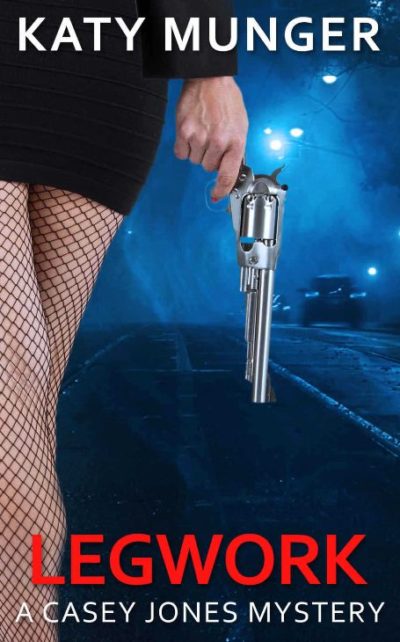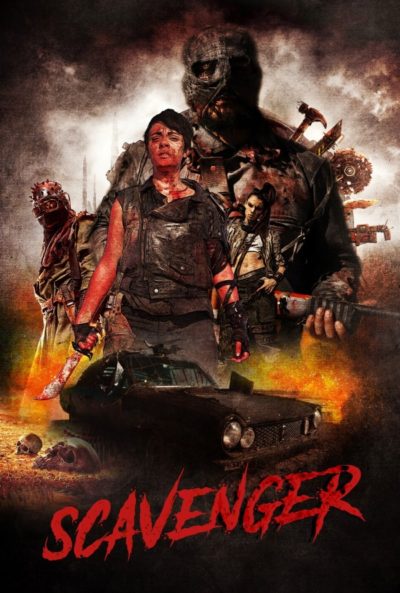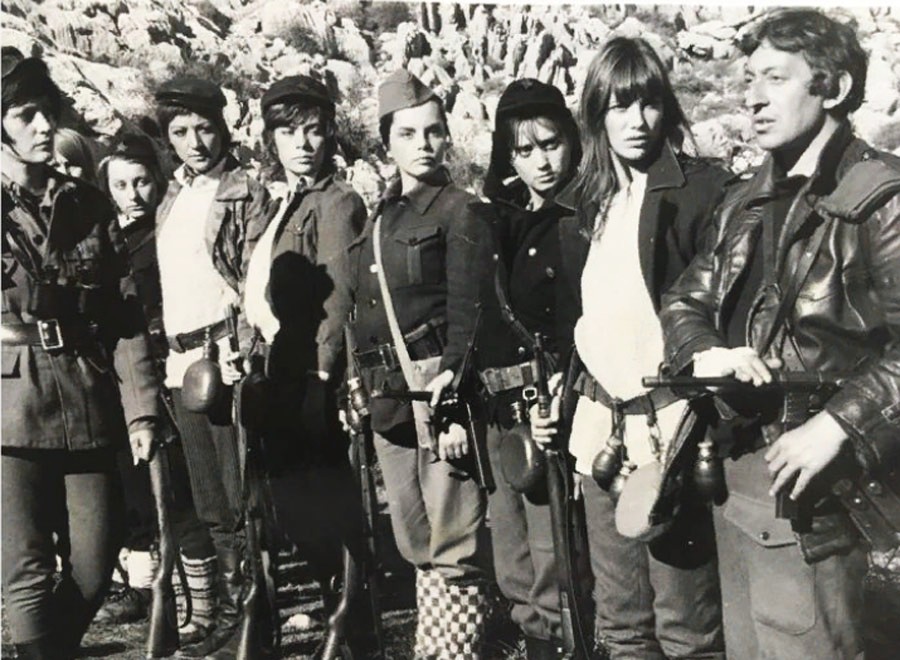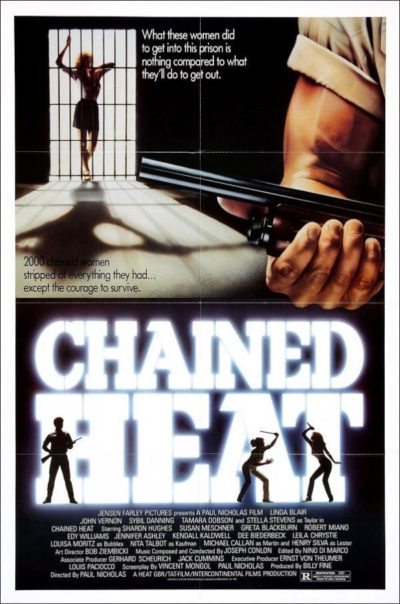Literary rating: ★★½
Kick-butt quotient: ☆☆
 While omnibus editions of series are often a good way to pick up a large volume of content for a discounted price, they do have their downside. Especially for someone like me, who is basically bloody-minded and regards the dreaded Did Not Finish as a badge of failure. So even when a book is not that entertaining, I still find myself slogging on: and when there are three volumes in one, its a process which naturally takes that much longer. I think if I’d had just the one story here, I’d perhaps have looked upon this with a kinder eye. Three was tough, not least because the final story was the longest, occupying a solid forty percent of the set, and is also the least entertaining of the trilogy.
While omnibus editions of series are often a good way to pick up a large volume of content for a discounted price, they do have their downside. Especially for someone like me, who is basically bloody-minded and regards the dreaded Did Not Finish as a badge of failure. So even when a book is not that entertaining, I still find myself slogging on: and when there are three volumes in one, its a process which naturally takes that much longer. I think if I’d had just the one story here, I’d perhaps have looked upon this with a kinder eye. Three was tough, not least because the final story was the longest, occupying a solid forty percent of the set, and is also the least entertaining of the trilogy.
The heroine is a private detective – albeit rather unlicensed, due to a previous felony in another state – operating out of Raleigh, North Carolina. Because of her status, she works under Bobby D, a 360-pound eating machine in PI form, though it seems that Casey is a little on the well-built side herself. For example, one of her breakfasts is itemized as “A pound of grits and butter – never mind the fried eggs, sausage and biscuits,” or she describes herself as “chubby at first glance, and stocky at second.” This does not seem exactly to be reflected on the book cover (right), and gluttony isn’t the only one of the seven deadly sins of which she’s fond either. She has quite the wandering eye, and at times it feels as if there’s hardly a man who crosses her path – be they cop, suspect, witness, or merely a convenient to hand bar-tender – about whom she does not have carnal thoughts, to some degree. I mean, it’s a legitimate part of her character, but I’d prefer to have seen the same effort put into delivering action.
There too, the cover’s accuracy must be questioned, offering a level of gun-toting that’s never quite achieved. Though at least in the first couple of volumes, the plot is decent. #1, Legwork sees a political campaign derailed when a corpse shows up in the driveway of one candidate’s house, for whom Casey has been working as a bodyguard. This job gets upgraded to finding the killer, which gets her involved in a murky conspiracy of real-estate corruption. It could easily have toppled over into needless complexity, yet Munger manages to keep everything clear and moving forward. Part two, Out of Time, has her trying to clear a woman who is on Death Row for murdering her detective husband, and there’s a similarly tangled web here, this time involving police misconduct. It does actually have a meaningful and reasonably exciting climax, in which Casey is hunted through the woods by a corrupt cop.
Then there’s the third part, Money to Burn, and that’s where scenario fatigue really set in for me. It’s perhaps also where the fact these are almost period pieces nowadays (the first volume was originally published back in 1997) hurt the books most, with a slew of elements which felt particularly anachronistic to a modern reader. A tobacco company scientist is murdered, opening the door to a mess of corporate shenanigans, rich familial strife, a serial rapist and a far too long description of the heroine’s attendance at some kind of debutante ball, about which I cared not in the slightest. There’s almost a class struggle subtext here too, with Casey repeatedly feeling her low origins when operating in the world of high society. It’s an unengaging mix between Lifestyles of the Rich and Famous with The Jerry Springer Show. I persisted, yet am now completely burned out on Ms. Jones. Wild horses probably could not drag me into reading parts 4-7.
Author: Katy Munger
Publisher: Thalia Books, available through Amazon, both as a paperback and an e-book
Book 1-3 of 7 in the Casey Jones Mystery series.





 This should be right up my alley. For it’s a grungy, post-apocalyptic story of revenge, which is heavy both on the carnage and the nudity. Throw in disapproving reviews containing lines like, “Downright nasty movie that takes all the worst bits of exploitation cinema and proudly puts it on display,” or “Scavenger is truly appalling,” and you’ll understand why it was fast-tracked for viewing. However, the weird thing is… those reviews aren’t wrong – it is a bad movie, just not for the reasons they espouse. The bigger problem is simply poor execution, in a way that manages to take the sex ‘n’ violence, and make it all painfully dull. Of all the cinematic sins, that’s one I find hard to forgive.
This should be right up my alley. For it’s a grungy, post-apocalyptic story of revenge, which is heavy both on the carnage and the nudity. Throw in disapproving reviews containing lines like, “Downright nasty movie that takes all the worst bits of exploitation cinema and proudly puts it on display,” or “Scavenger is truly appalling,” and you’ll understand why it was fast-tracked for viewing. However, the weird thing is… those reviews aren’t wrong – it is a bad movie, just not for the reasons they espouse. The bigger problem is simply poor execution, in a way that manages to take the sex ‘n’ violence, and make it all painfully dull. Of all the cinematic sins, that’s one I find hard to forgive. ★★
★★ After her truck-driving husband is injured in an attempted hijack, Sweetiepie (Darby) finds herself in a bind. They’re way behind on payments for the truck, to the point that it’s about to be repossessed by C.W. Douglas (Stanton) of Vehicle Retrievals Incorporated. In desperation, she hires experienced driver Flatbed Annie (Potts) to partner with her, working the necessary delivery routes to pay off their debt. However, Douglas is not the only threat the pair face on the highway. The failed hijack was intended to recover a package which has surreptitiously been placed in the truck during a run to Mexico, and its owners remain very keen to recover their merchandise from the new operators,
After her truck-driving husband is injured in an attempted hijack, Sweetiepie (Darby) finds herself in a bind. They’re way behind on payments for the truck, to the point that it’s about to be repossessed by C.W. Douglas (Stanton) of Vehicle Retrievals Incorporated. In desperation, she hires experienced driver Flatbed Annie (Potts) to partner with her, working the necessary delivery routes to pay off their debt. However, Douglas is not the only threat the pair face on the highway. The failed hijack was intended to recover a package which has surreptitiously been placed in the truck during a run to Mexico, and its owners remain very keen to recover their merchandise from the new operators, Paramedic Melina (Sila) regains consciousness to find herself in the back of her ambulance, along with her patient, Franson (Loranger), and the rest of the crew in various states of health. The vehicle had gone off the road and fallen into a ravine, along with the accompanying police car. It turns out they were transporting Franson and another prisoner to hospital when the crash took place – and it quickly becomes apparent that what happened was far from an accident. A posse of camo-clad hunters close in on them, led by Caine (Gray). Their mission to make all the vehicle’s occupants, both criminal and otherwise, pay for the sins of their pasts. They’ve brought with them the wronged parties in question, to exact bloody revenge.
Paramedic Melina (Sila) regains consciousness to find herself in the back of her ambulance, along with her patient, Franson (Loranger), and the rest of the crew in various states of health. The vehicle had gone off the road and fallen into a ravine, along with the accompanying police car. It turns out they were transporting Franson and another prisoner to hospital when the crash took place – and it quickly becomes apparent that what happened was far from an accident. A posse of camo-clad hunters close in on them, led by Caine (Gray). Their mission to make all the vehicle’s occupants, both criminal and otherwise, pay for the sins of their pasts. They’ve brought with them the wronged parties in question, to exact bloody revenge.
 This seems to come from a subset of a whole slew of Paranormal Police Department series in which Logsdon is involved with various authors, e.g. NYPPD. I don’t believe you need to have read those, although I did feel a bit dumped in at the deep end here. Evangeline is a resident of a demonic realm and member of House Sinister, a group who are all but wiped out in a surprise attack. Key words: “all but”. The job needs to be finished, but before that can happen, Evangeline flees to the human world – Los Angeles in particular – taking over the body of a rich socialite who conveniently just died in a car crash, so is ripe for possession.
This seems to come from a subset of a whole slew of Paranormal Police Department series in which Logsdon is involved with various authors, e.g. NYPPD. I don’t believe you need to have read those, although I did feel a bit dumped in at the deep end here. Evangeline is a resident of a demonic realm and member of House Sinister, a group who are all but wiped out in a surprise attack. Key words: “all but”. The job needs to be finished, but before that can happen, Evangeline flees to the human world – Los Angeles in particular – taking over the body of a rich socialite who conveniently just died in a car crash, so is ripe for possession. If Ryan looks familiar, that’s because she is. She starred in
If Ryan looks familiar, that’s because she is. She starred in 
 This Taiwanese kung-fu potboiler just about manages to sustain interest for an hour, before losing the plot (literally, and such as it was to begin with) down the stretch. It begins with ten martial arts masters stealing an omnibus edition of fighting manuals from the local Shaolin temple. Trying to get entry, and failing, because they won’t admit women, is Shi Fu Chun (Kwan). With the help of former head priest Lin Chiu (Chan), who still lives nearby, she is taught a slew of skills, and ends up assigned the task of recovering the purloined books, and restoring the temple’s honour. Oh, except the “positive kung-fu” learned is causing Shi Fu to transition into a man. So she/he (inexplicably, the 1977 film does not provide us with preferred pronouns…) needs to find and learn some “negative kung-fu” stat, to counter the process.
This Taiwanese kung-fu potboiler just about manages to sustain interest for an hour, before losing the plot (literally, and such as it was to begin with) down the stretch. It begins with ten martial arts masters stealing an omnibus edition of fighting manuals from the local Shaolin temple. Trying to get entry, and failing, because they won’t admit women, is Shi Fu Chun (Kwan). With the help of former head priest Lin Chiu (Chan), who still lives nearby, she is taught a slew of skills, and ends up assigned the task of recovering the purloined books, and restoring the temple’s honour. Oh, except the “positive kung-fu” learned is causing Shi Fu to transition into a man. So she/he (inexplicably, the 1977 film does not provide us with preferred pronouns…) needs to find and learn some “negative kung-fu” stat, to counter the process.